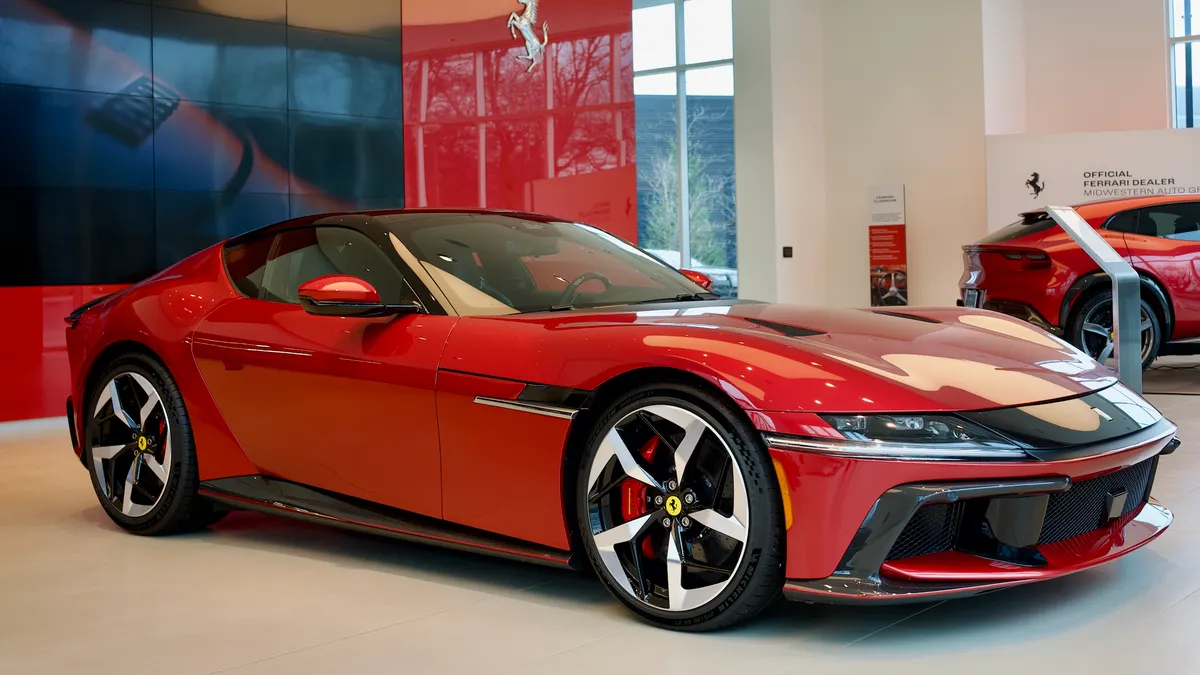Editor's note: This story is part of the WardsAuto digital archive, which may include content that was first published in print, or in different web layouts.
OAK BROOK, IL – Though some feared the new engine stop/start feature on the ’14 Chevrolet Malibu sedan might make more enemies than friends, brand marketing manager John Hahn insists the technology not only has won consumer acceptance but stands a good chance of migrating to other Chevy models.
Stop/start is standard on the 2.5L 4-cyl. engine in the base Malibu, a sedan that was given both a revised look and upgraded technology only one model year after it was completely redone for ’13.
Hahn details the upgrades to the ’14 Malibu at a Midwest Automotive Media Assn. meeting here, noting quick revisions to existing products may become more common in the future.
“The days of waiting to make changes based on traditional timing cycles is a thing of the past,” he says. “We're going to react to customers as quickly as we can when we develop new technology and the customer needs it.”
Quick changes to the ’14 Malibu include a new nose; tweaks to add more room for heads, shoulders and knees in the rear of the cabin; and the addition of stop/start tech that promises better fuel economy.
Stop/start shuts off the engine rather than letting it needlessly consume fuel while idling, such as at a stoplight, then restarts when it's time to move again.
General Motors offers stop/start with eAssist in Buick sedans, a system that uses a battery pack to give the gasoline engine a 15-hp boost of energy and ease its workload.
Hahn says the new system in the ’14 Malibu differs from eAssist in that it does not need a space-consuming battery pack, and that stopping and starting is based on engine valving directed automatically by factors such as speed and power.
“We get the benefit of 15% better mileage, or 36 mpg (6.5 L/100 km) highway and a 650-mile (1,046-km) driving range on a fill-up, without the added cost of a hybrid battery pack – a sedan that starts at $22,900, not at the upper-$30,000 end of hybrids (and offers) the mileage benefits of a hybrid without the cost of a hybrid.”
The mileage improvement of stop/start led GM to kill the eAssist model of the Malibu, which trailed the new one in fuel economy.
While other automakers offer stop/start, “ours is on a mainstream engine that has been purchased by 90% of our buyers, while other stop/start systems are on their upper-level niche hybrids,” Hahn insists.
He says customers and media alike have reacted positively to the system.
Consumer Reports made Malibu a recommended buy. Hahn notes Malibu sales rose 58% in October and 41% in November. “We expect the upward trend to continue as a result of the enhancements, plus the new technology.”
The Malibu’s stop/start has no switch to activate or deactivate the system. “We wanted to keep it simple and not have customers wonder, ‘What am I supposed to do now?,’” Hahn says.
The Malibu will continue offering only a pair of 4-cyl. engines, the 196- hp 2.5L and a 259-hp 2.0L turbo.
“No V-6s,” the Chevy executive says. “To offer a V-6 means adding mass to hold the weight, and the added weight doesn't save gas."
Hahn, who also is Impala marketing manager, says that model will add a dual-fuel compressed- natural-gas/gasoline version this summer. Push a button and the car will run on either fuel. The traditional gasoline tank will be joined by a CNG tank housed in the trunk.
“As we learn about adapting that technology and get customer feedback on that technology from Impala, there could be a natural-gas Malibu as well,” Hahn says. “But there are no plans now.”
But what about stop/start in other Chevy vehicles, specifically the large Impala sedan that could achieve better fuel economy in a big family car by adopting the technology?
"We have no plans to announce a stop/start expansion at this time,” he says. “But you could expect an announcement in the future, and while I won't talk about Impala I think a lot of people would agree that would be a good feature for Impala."
Hahn doesn’t offer a timetable for expanding stop/start or adding CNG technology to more vehicles. "We are looking at a lot of new technology that we will bring out when deemed appropriate based on market needs. We want to react more quickly and be more responsive to consumers and not wait until the next major scheduled update to upgrade."
Chevrolet also is reaching out to former Saturn and Pontiac owners to persuade them to stay in the General Motors family by buying Chevy when it comes time to trade for a new vehicle.
"That's one of our areas of focus,” Hahn says. “I have no numbers to show how many (Saturn/Pontiac) buyers we've gotten, but we…send mailings and follow-up information to those owners, so it's safe to say we are focusing on them to make us their first choice."

















